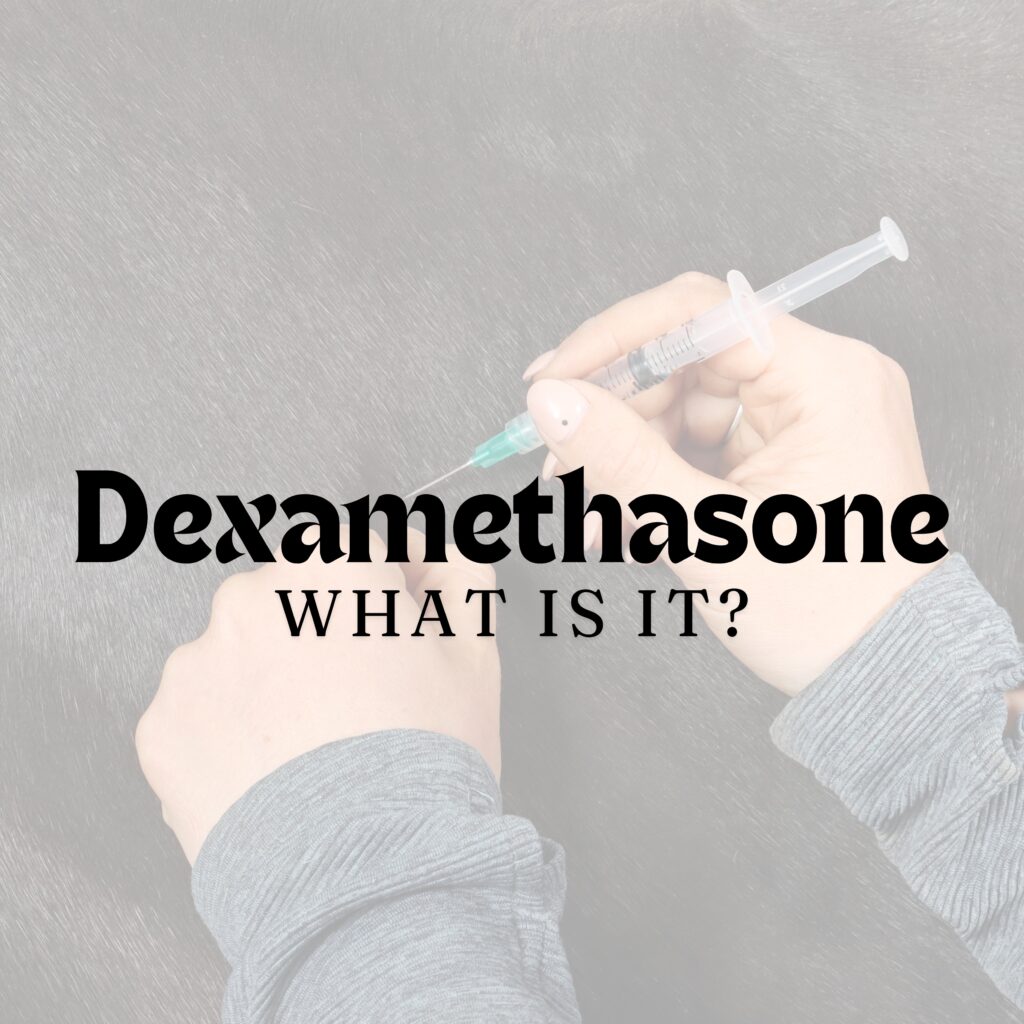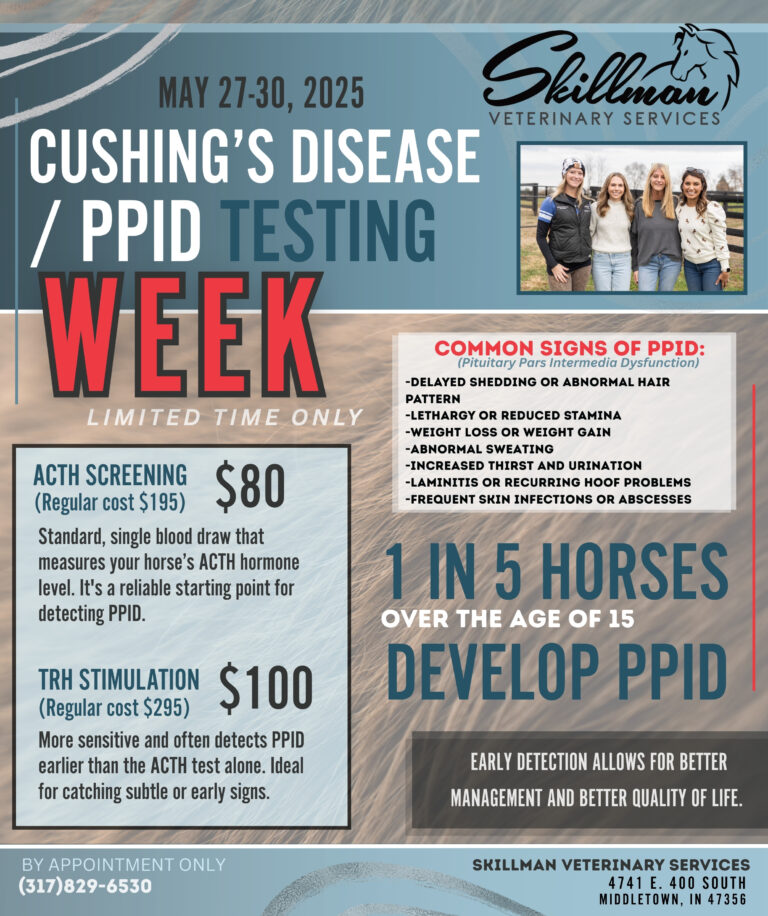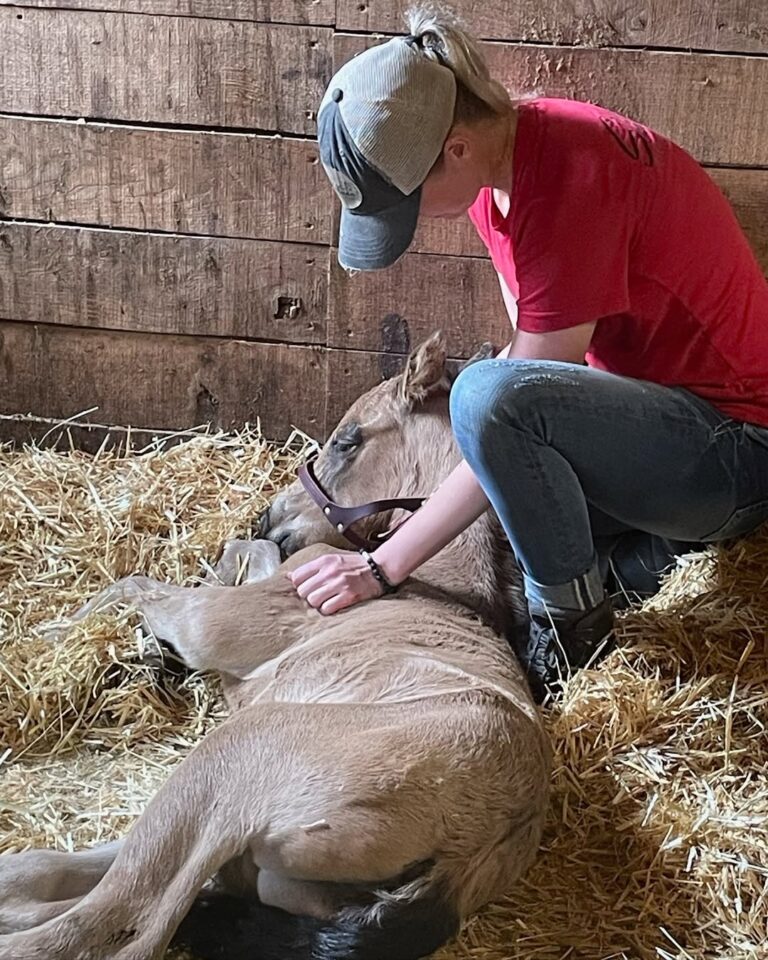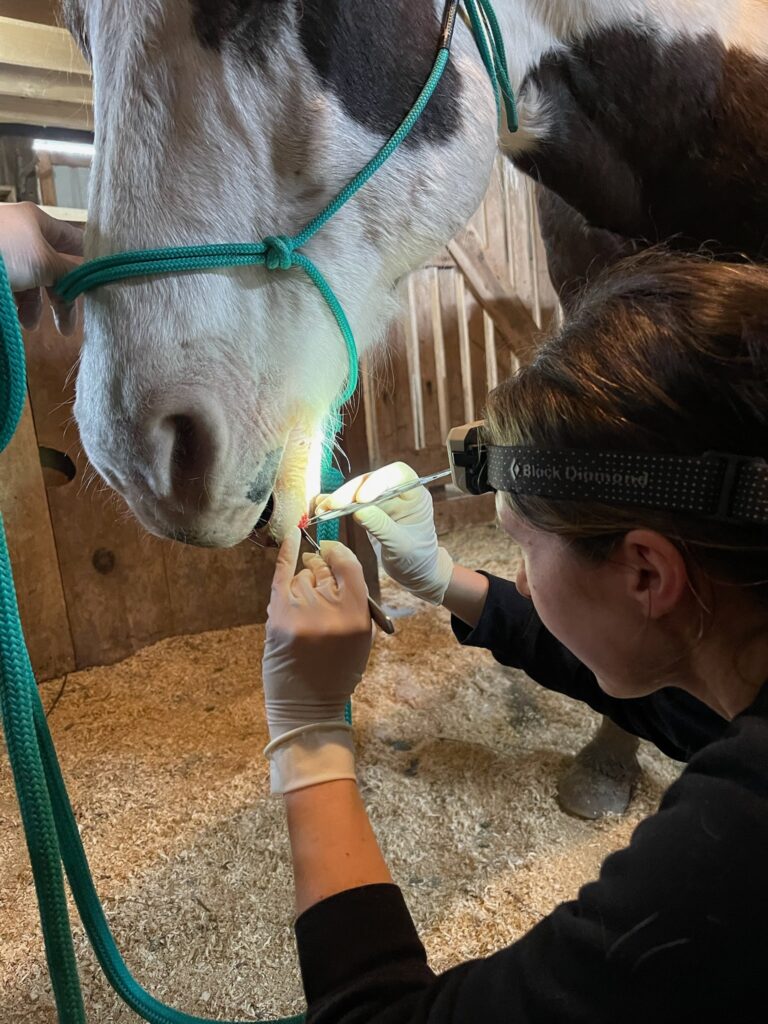What is Dexamethasone?

What is dexamethasone?
Dexamethasone (brand names Azium®, Dexasone®, Decadron®, Dexium®, Dexameth-a-Vet®, Dex-a-vet®, Maxidex®, Neofordex®, Hexadrol®) is a glucocorticoid steroid medication used to treat many inflammatory conditions, patients with adrenal gland disease, and patients with immune-mediated diseases. It can also be used to diagnose Cushing’s disease (see handout “Dexamethasone Suppression Tests” for information about this diagnostic use of dexamethasone).
Its use in cats, dogs, other small mammals, and large animals to treat inflammatory conditions and other conditions is “off label” or “extra label”. Many drugs are commonly prescribed for off-label use in veterinary medicine. In these instances, follow your veterinarian’s directions and cautions carefully, as they may be significantly different from those on the label.

How is dexamethasone given?
- Dexamethasone is given by mouth, in the form of a tablet or liquid. It can also be given as an injection into the vein or muscle while in the clinic, as an aerosol for respiratory conditions, and as a topical eye medication.
- When given by mouth, it may be given with or without food, but preferably with food.
- If vomiting or nausea occurs when dosed on an empty stomach, give future doses with food or a treat.
- Measure liquid formulations carefully.
- NEVER give this medication with NSAIDs, as this can increase the occurrence and severity of stomach or intestinal ulcers.
This medication will take effect quickly, in about 1 to 2 hours, and improvement in clinical signs should follow. Do not stop this medication abruptly if your pet has been taking it for more than 2 weeks.
What if I miss giving my pet the medication?
If you miss a dose, give it as soon as you remember, and then continue with the regular dosing schedule. However, if it is almost time for the next dose, skip the missed dose and resume the regular dosing schedule. Do not give the pet two doses at once.
Are there any potential side effects?
Dexamethasone may cause the following side effects at any dose:
- increased drinking, urination, and appetite
Dexamethasone may cause the following side effects at higher doses and with prolonged chronic use:
- dull/dry haircoat
- weight gain
- pot-bellied appearance
- muscle weakness
- panting
- vomiting
- diarrhea
- elevated fat or liver enzymes on bloodwork analysis
- stomach or intestinal ulcers and bleeding, leading to black, tarry stools
- bloody vomit
- black specks like coffee grounds in the vomit
- frank blood in the stools
- loss of appetite
- fever
- secondary infections
- inflammation of the pancreas
- activation or worsening of diabetes mellitus
- muscle wasting
- severe changes in behavior
This medication can also interfere with certain lab tests, including:
- ACTH (adrenocorticotropic hormone) stimulation
- blood cholesterol
- ALP (alkaline phosphatase)
- urine glucose (sugar) levels
- potassium levels
- thyroid hormones
- skin tests
- white blood cell counts
This moderate-acting medication should stop working in a few days, although effects can be longer in pets with liver or kidney disease.
Are there any risk factors for this medication?
Dexamethasone should NOT BE USED in:
- rabbits
- pets that are allergic to it
- pets with systemic fungal infections
- pets with diabetes
- pets with stomach or intestinal ulcers
- pets undergoing surgery or recovering from surgery
Dexamethasone should be USED WITH CAUTION in:
- dogs, as it can cause gastrointestinal complications and bleeding
- cats, as it can cause diabetes mellitus
- young animals, as this medication can slow growth
- pets with kidney disease
- pets with heart disease
- pets with bacterial or fungal infections
- pets that are pregnant or lactating
Do not stop this medication abruptly after long-term use (greater than two weeks); taper slowly to avoid complications.
Are there any drug interactions I should be aware of?
The following medications should be used with caution when given with dexamethasone:
- barbiturates
- cyclophosphamide
- cyclosporine
- diazepam
- potassium-depleting diuretics
- fluoroquinolones
- insulin
- azole antifungals
- macrolides
- mitotane
- phenobarbital
- praziquantel
- vaccines
NSAIDs should NEVER be given concurrently with dexamethasone.
Be sure to tell your veterinarian about any medications (including vitamins, supplements, or herbal therapies) that your pet is taking.
Is any monitoring needed with this medication?
Depending on the pet’s health status, as well as medication dosage and duration, your veterinarian should monitor your pet’s:
- weight
- appetite
- electrolytes
- blood proteins
- blood sugar levels
Your veterinarian may also monitor your pet to be sure that the medication is working.
Watch for signs of swelling, and in young animals, watch for proper growth and development.
How do I store dexamethasone?
- Store at room temperature, between 15°C and 30°C (59°F and 86°F).
- Store away from moisture and light.
What should I do in case of emergency?
If you suspect an overdose or an adverse reaction to the medication, call your veterinary office immediately. If they are not available, follow their directions in contacting an emergency facility.
Contributors: Lauren R. Forsythe, PharmD, MBA, DICVP; Rania Gollakner, BS, DVM, MPH
© Copyright 2024 LifeLearn Inc. Used and/or modified with permission under license.











